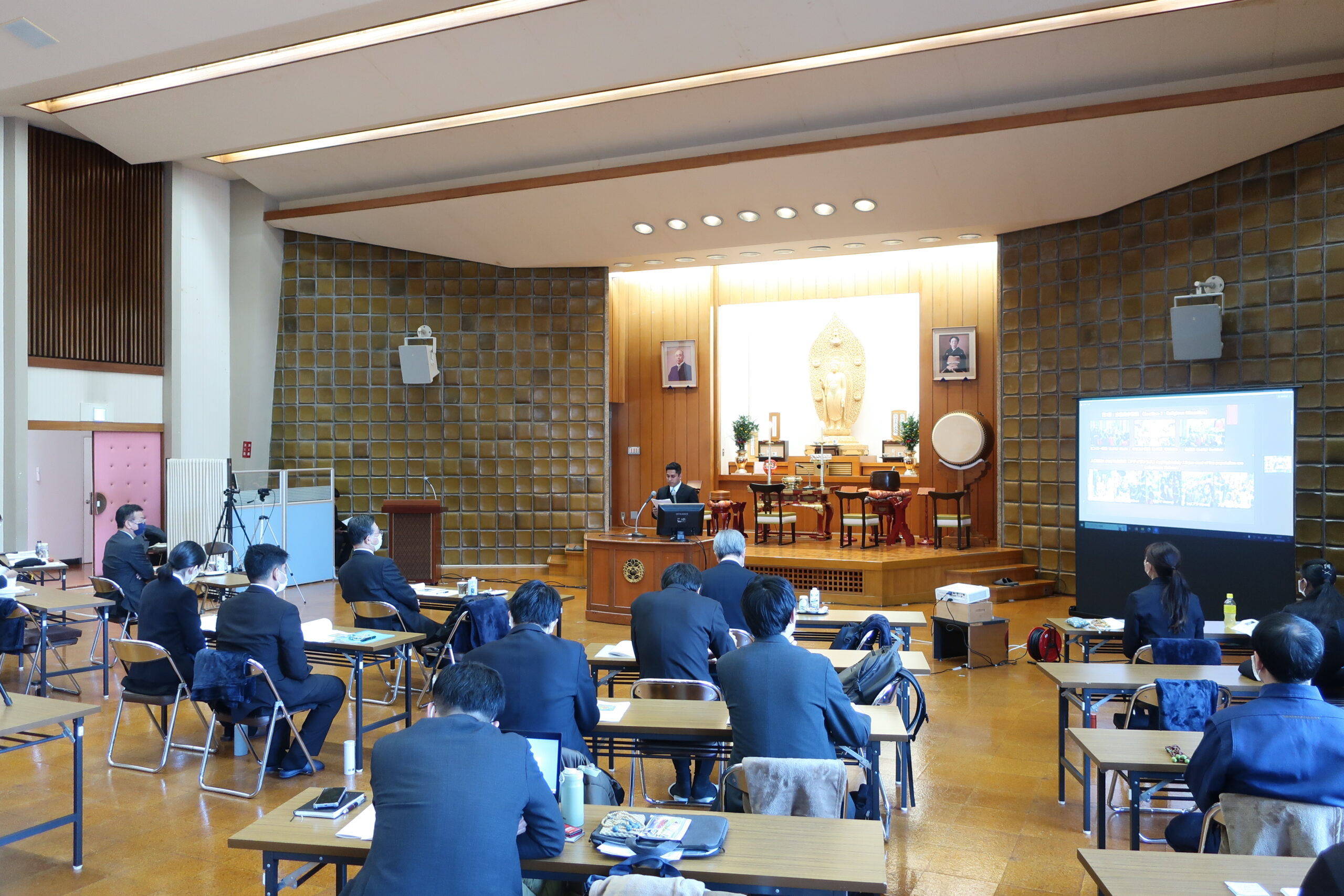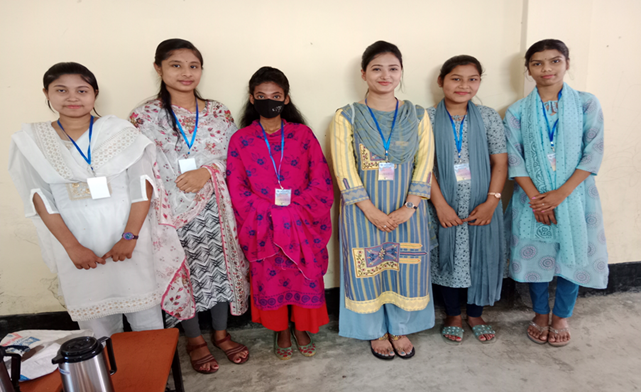
On January 20, 2023, the Gakurin Ome Campus hosted the “Graduation Research Presentation” of the Gakurin International Program. Two 29th seminarians of the program from Bangladesh presented their two-year study and vows.
Ms. Atashi Talukder made a proposal titled “Comparative Analysis of Theravada and Mahayana Buddhism on the Status of Women in Bangladesh”. She described how she came into contact with Mahayana Buddhism after joining Rissho Kosei-kai, was moved by the teaching that all people can be liberated, and joined the Gakurin to learn more. She then pointed out that the status of women in Bangladesh is low and that there are many issues such as “lack of freedom of religion,” “inequality between men and women,” and “gender disparity in education. She said that while studying at the Gakurin, believing that “anyone can become a Buddha,” she became keenly aware of the importance of learning and practicing the teachings from home, especially by women, in order to bring about equality. She expressed her concrete plan to organize Training of Trainers for Buddhist women from both Theravada and Mahayana traditions and for local population in Chittagong area.
Mr. Barua Shourab gave a presentation on “The Current State of Majority-Minority Relations in Bangladesh and the Need for Religious Education through Collaboration”. He, who was born and raised in Dhaka, where Muslims are the majority, pointed out the issue of school education in which Buddhists and Muslims do not have opportunities to learn about each other’s religions. Then he mentioned the WCRP’s “Hand Wash Project,” in which he participated as a religious youth in 2015. He discussed the importance of practice as well as knowledge for true interreligious understanding. He then expressed his desire to launch a project that brings together young people of different religions to take concrete action on various global issues, such as environmental problems and conflict resolution.
Rev. Kyoichi Sugino, President of Gakurin Seminary, praised the two Bangladeshi students for deepening their understanding of the “Four Noble Truths” through their time in the Gakurin and for demonstrating a willingness to use them to tackle problems in their own countries and in the world. They will now return to their home countries and work together in the field of religious cooperation to solve real-life problems. He encouraged the students, saying, “I hope that when you return to your home countries and encounter real hardships, you will continue to pursue your respective missions, supported by what you have learned.


